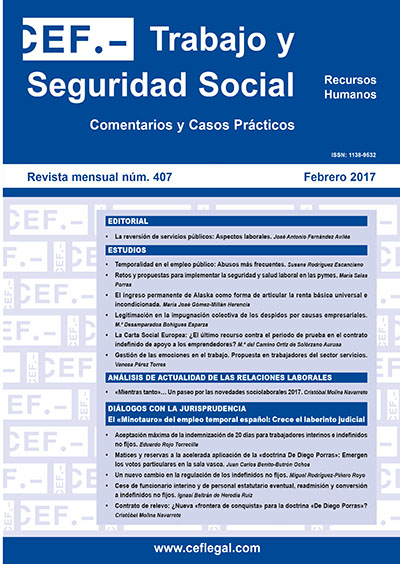Alaska permanent fund as a way to introduce a universal basic income
DOI:
https://doi.org/10.51302/rtss.2017.1944Keywords:
basic income, social protection, citizenship rights, permanent residence, fiscal adjustmentAbstract
Nowadays, basic income projects have been promoted in Europe as a way to universal and non-conditional social protection for all citizenship, without mean-tested proof or the intention to participate into labour market. Alaska Permanent Fund was mentioned as a the most developed and previous experience of this social protection by sociological and economist studies about basic income. With two different programs (Alaska Permanent Fund, set up in 1982, and Alaska Permanent Fund Dividend in 2010, in which it becomes), this attempt to introduce basic income was added to other projects that were developed after by different countries, as Brazil, Finland and different cities in Netherlands, and also Spaniards proposals that have been done by politic parties, trade unions and citizenship movements. In this framework, this article's scope will be analyze the adjustment of the Alaska permanent fund to the theoretical concept of basic income, in order to know the characteristic of this new ways of social protection in their legal scheme, so that it has been analyzed beneficiaries, material content and administrative process of recognition, starting the analysis with the review of economic and social characteristics of Alaska as a decentralized Administration and geographic territory of the United States.
Supporting Agencies
El presente trabajo se ha realizado en el marco del proyecto coordinado I D i «Las prestaciones económicas de garantía de recursos de subsistencia. Realidad española y análisis comparado del espacio europeo y latinoamericano», financiado por el Ministerio de Economía y Competitividad, cuyo investigador principal es el profesor doctor don Santiago González Ortega.



















